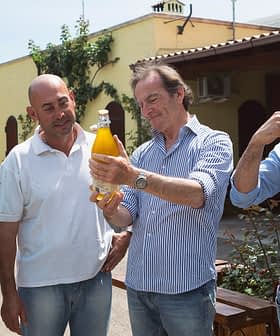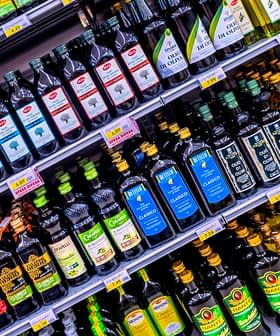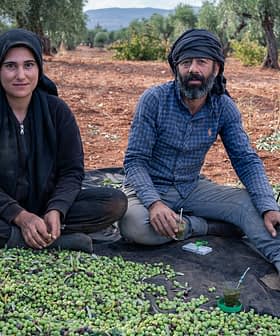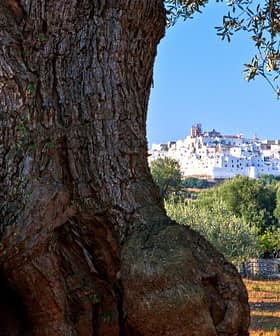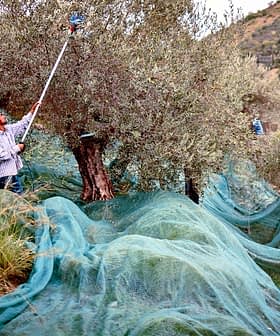 5.4K reads
5.4K readsProduction
Olive Oil Production Expected to Decrease in Italy Due to Ongoing Drought
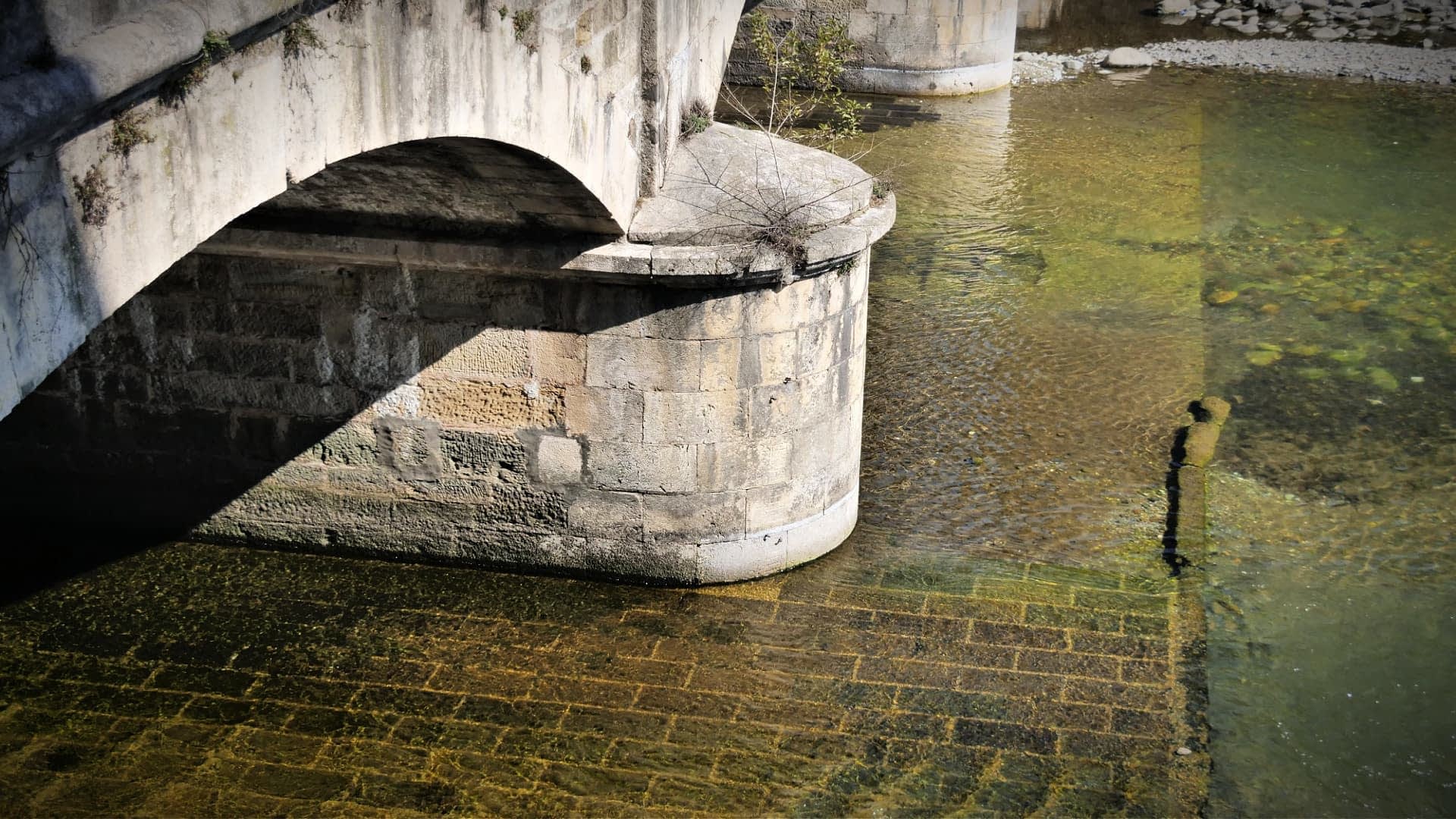
Italy is facing devastating impacts on agriculture due to new heatwaves and the worst drought in 70 years, causing significant stress on olive groves and lower olive yields. The government has declared a state of emergency in several regions, allocated funds to compensate farmers, and organizations are calling for immediate intervention to support farmers and combat the consequences of climate change, including building small lakes for irrigation.
New heatwaves set to hit Italy compounded by the country’s worst drought in 70 years are having a devastating effect on Italian agriculture.
Even drought-resilient permanent crops are affected by the extraordinary conditions, which are stressing olive groves across the country.
After such an exceptional flowering, the fruit set has greatly suffered because of the high temperatures.
The abundant olive flowering reported in the spring had raised hopes among many growers, but the subsequent heatwave in June has significantly lowered expectations in most of the country.
“What we see now are fewer olives than many expected,” Sabrina Diamanti, president of the Italian National Council of Agronomist and Forest Scientists (CONAF), told Olive Oil Times.
See Also:2022 Harvest Updates“Even if the olive tree is resilient to warmer temperatures, repeated heatwaves and drought will stop unnecessary activities, such as producing fruits, which is why we are starting to witness significant drop events,” she added.
However, Diamanti also suggested that the current dry weather may curb the reproduction of the olive fruit fly.
“In Italy, we have three olive fruit fly generations each year,” she said. “The heat has contained the first one. We still have to see what happens with the two next generations. Should temperature and humidity change, the current scenario could change accordingly.”
“Growers now must aim at maintaining the olives they have and try to bring them to the harvest season,” Diamanti added. “If, when and where possible, they will deploy emergency irrigation.”
The reduced number of olives on the trees does not represent an issue for growers, as the remaining fruits will accumulate a higher percentage of olive oil. Still, water scarcity might further exacerbate fruit drops, as the drupes add pulp over time and require more water to grow.
As the intensity of the drought has worsened, several Italian regions have formally declared a state of emergency due to deficient water levels in reservoirs, lakes and rivers. As a result, water availability for irrigation has been sharply diminished in central and northern Italy.
The government acknowledged the emergency in Lombardy, Piedmont, Veneto, Emilia-Romagna and Friuli Venezia Giulia. Tuscany, Umbria and Lazio are expected to follow suit.
The government has deployed €36.5 million to compensate local farmers and ensure water distribution to the population.
According to the Confederation of Italian Farmers (CIA), the prolonged drought could significantly lower olive oil yields.
“Olive trees are facing another challenging season,” said Federico Taddei, president of CIA Tuscany. “After such an exceptional flowering, the fruit set has greatly suffered because of the high temperatures. Should the current severe drought extend into the next few weeks, we will probably witness such water stress for olive trees that their fruits will fall to the ground.”
Aipol, the Lake Garda olive growers cooperative, told Brescia Oggi the combination of high temperatures and drought is testing the resilience of local groves.
“Because of water scarcity, we see the drupes wither, show signs of necrosis and then fall on the ground,” Aipol said. “On top of that, we are seeing a new wave of the marmorated stink bug in the Garda area.”
Weather forecasts also do not seem likely to help olive growers, as more hot air is expected to blow in from North Africa, covering all of Italy and much of the Mediterranean basin.
“This is a new heatwave that takes advantage of the absence of the Azores anticyclone, which in the past used to protect Italy from the scorching northern African heat,” Mario Giuliacci, a meteorology professor, told Olive Oil Times. “It has almost disappeared, and we now see the consequences.”
Giuliacci added that farmers should not expect summer rainfall to rebalance the situation since it tends to be the driest season during the year.
“The loss of rainfall has been so immense since last winter that there is no way to go back to a balance,” he said. “Look at the snow, we did not have any snow on our mountains in winter, and we did not have any rainfall either in the following months. Drought will continue.”
According to Unaprol, the national olive oil producers consortium, water scarcity and heat mean there will be lower yields of certain olive oils certified with Protected Designation of Origin (PDO) or Protected Geographical Indication (PGI) status.
The consortium cited the Tuscany PGI and Terra di Barri PDO as two of the most significant examples, both in terms of volume and international market share.
Meanwhile, the Irrigation and Land Reclamation and Management Consortia (ANBI) has warned that the drought is quickly expanding across the south of the county as well, home to Italy’s two largest olive oil-producing regions, Puglia and Calabria.
“It is the sixth relevant drought in 20 years,” said Francesco Vincenzi, president of ANBI. “We cannot continue to be overwhelmed by the emergency. We must adopt strategies to combat the consequences of climate change and upgrade the resilience of our communities.”
David Granieri, Unaprol’s president, further warned that climate change requires immediate intervention to support farmers in the current and future olive growing seasons.
A study presented by the national farmers’ association, Coldiretti, found that rainfall in the first six months of 2022 decreased by 45 percent while the surface temperature in the same period was 0.76 ºC above average. Coldiretti said 2022 already has been the hottest year on record.
According to the study, June has been 2.8 ºC warmer than average. Higher temperatures paired with the drought have resulted in €3 billion in damage to farms and fueled several wildfires in the country.
“As the higher pressure area from North Africa sets in, we see how summer is not only bringing dry conditions, but soil moisture levels are also decreasing,” said Giuliacci. “This represents a significant risk for farming in many areas.”
Coldiretti, ANBI and Unaprol have asked the government to build 10,000 small lakes to act as reservoirs for irrigation and support local ecosystems damaged by drought and heat.
“We need to upgrade our water infrastructure to rehabilitate the water networks, which are responsible for an average of 36 percent leakage of potable water,” Diamanti added. “The re-use of rainfall, new water collection facilities for non-potable water use and innovation in agriculture are the areas in which we need to invest.”
While she acknowledged that the project to build small lakes would help support farmers in increasingly dry areas and provide ammunition to combat wildfires, Diamanti said that they are only a single part of what needs to be a more holistic strategy.
“This infrastructure has to be built most efficiently. We certainly do not need a network of empty basins,” Diamanti said.
“That means an overall vision for collecting and managing waters. We need to look at the whole problem from every angle… to maintain the soil and preserve it,” she concluded.


